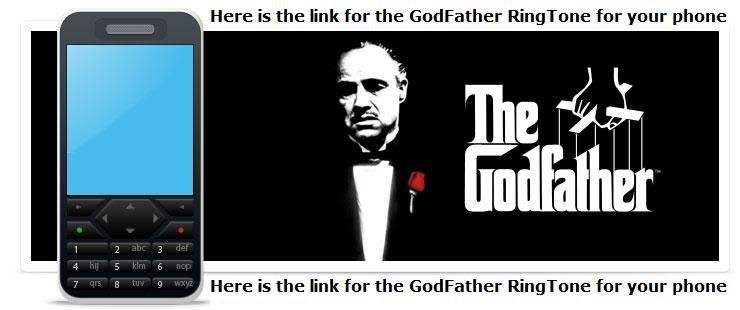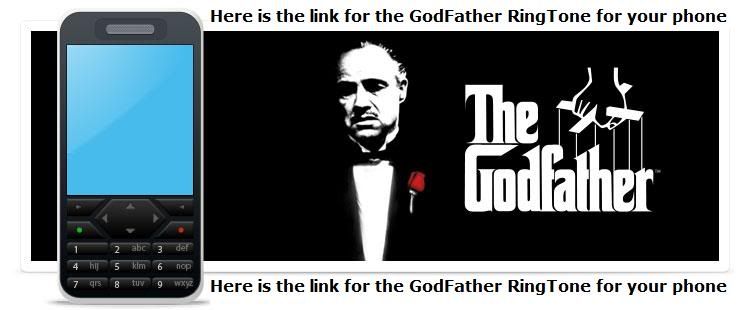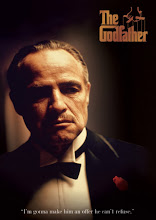In the late 2006 the highly glorified gangster movie Scarface was re-released for the second time in two years and I honestly don't know why that is. I don't understand what the fuss over this movie or the character comes from nor do I understand why it is influencing our already drug driven
inner cities. Do the inner city youth and young American even know the history of this character? Scarface was a racist murderer who brought, sold and distributed cocaine and this movie has a generation itching to follow in his footsteps. With the re-release of Scarface in 2004 there was frenzy about purchasing the digitally re-mastered film but I was a lot less enthusiastic than my peers. A friend asked if I was going to purchase the movie and my response was "who is Scarface?" His reply was, "How are you into the GodFtaher and you don't like the Scarface is?" He didn't get the joke. First how about a little history?
In 1932 Paul Muni starred in a film loosely based on the real-life mobster Al Capone, the film was titled Scarface, which is Al Capone's nickname. Fifty-one years later in 1983 director Brian dePalma casted a Italian actor who was on the come up to play a Cuban immigrant who murdered his was to the top of Miami's cocaine underworld, the name of the film was Scarface. In 1983 the release was modest and received less than steller reviews. Now, twenty-three years later Scarface has a video game, clothing and footwear line and even cell phone ring tones. Personally I have a hard time trying to figure out what the big deal is.
In the movie Scarface, Al Pacino strategically makes his way to the top of the underworld through his persistence, ruthless behavior and extraordinary networking abilities. With no education whatsoever, Montana acquires unimaginable wealth and power that most men only dream or rap about.
Montana did what he wanted, brought what he wanted and killed who ever crossed his path with one of his victim's being a childhood friend. Scarface had no remorse and openly defied authority and that kind of defiant behavior is appealing to destitute individuals. Not only has Scarface influenced African American youth, suburbia and celebrities have been affected as well. Watch an episode of MTV's Cribs and many of the male superstars will have a huge poster of Scarface holding a tommy gun some where in his home.
Unfortunately after watching the movie the same question lingered, what was the big deal? Why is the hip-hop and most importantly the urban community going crazy over Scarface? What is the fascination? Why is one of the biggest names in rap named after a Cuban/Italian mobster? The Scarface movie has inspired the a hip-hop artist, Rick Ross, who with the aid of the Scarface movie has a chart topping song "Push It." The song "Push It" contains a sample from the 1983 film. After listening to various rap lyrics and talking to the new generation who have single handedly made Scarface more popular than it's initial release in 1983, a couple of answers have arouse. After watching the movie a few more times I have come to make the connection between hip-hop, the urban community and Scarface. The urban community is fascinated with going from rags-to-riches gained by ruthless violence as depicted in the film. In the urban community also known as "hoods" the most important things are money, power and women. In the hood the fastest way to obtain each is through violence and drug dealing because the idea of a nine to five isn't appealing enough to the men who reside in "hoods" making violence and drug dealing the only option.
Again I ask, what is the big deal? So an immigrant killed his way into wealth and power. Is that enough to walk around in a leather jacket priced at $300 with Scarface covering the back of it? Is murder and drugs becoming so condoned that Nike has designed a Scarface edition of their best
selling Air Force 1 shoe? Some people have said that Scarface is more symbolic than anything. There mere fact that an immigrant came to the shores of America with nothing just the shirt on his back. He took over the cocaine business from the clutches of a white man, stole the white man's woman and ran his operation better. Despite the vulgarity and violence the film gives hope to hopeless individuals meaning if he could do it any one of us can weather you are from the hood, a poor country or the suburbs. It's not so much what he did but the way he did it and that idealology had been adapted and upheld by the new generation. But many other more influential people have inspired us, Dr. Martin Luther King Jr. or former President Kennedy so why have we chosen to put Scarface amongst people who have fought to inspire us in a positive way? Is the new generation that desperate for inspiration to adapt a fictional violent character? Purchasing clothing, footwear and reciting lyrics that pertain to Scarface suggest that yes the new generation is desperate for inspiration. Desperate to identify with a figure that represents their way of life, thinking and personality. The current generations have more access to drugs, firearms and are more ignored than all of the past generations combined sending them into an independent destructive mind state and I think Scarface represents that. An individual is born into poverty but dreams of having something better is common amongst the newer generation and to have someone gain everything through drugs and violence makes it that much more appealing. Since drugs are flooding our urban streets already it makes hoods a breedingh ground for copycat Scarfaces.
I personally find it disturbing that our generation feels that way. On Rick Ross' 2006 album release "Port Of Miami" he makes numerous references to Scarface especially on his chart topping song "Push It", the song "Push It" is referring to selling/distributing cocaine, even taking in
Scarfaces' message of coming from nothing and gaining everything. The song says, "Allergic to broke, determined to blow, on the boat hid the work in detergent and soap. We get it shipped from Haiti…" It's to the point that when someone does something especially violent they are referred to Scarface and it has become sort of a rite of passage in the hood. Street credibility goes up and you become untouchable. But seriously, is it that serious? I find it extremely ignorant that all these young black guys are mimicking and idolizing a person who in that time was racist toward African American's. Not just Scarface, but Capone, Noregga, Gotti and etc. They are taking on their names as rap artist, glorifying the movie and shadowing these individuals who in their day would kill you without blinking just because you were black. Now how much sense does that make? Scarface is put on the plateau as if he is a god and he was nothing more than a common criminal. A murderer, a cocaine dealer and an over jealous brother and yet black boys and men around the country idolize him, quote him and even wear apparel and footwear with his design and logos on it. Can a movie spark a generation like that? And the world's number 1 footwear company leeches off the miseducation and ignorance of our inner city youth. Rappers such as Rick Ross are making millions off rapping as if he is the 2006 Scarface and the problem is I bet he's never even been around cocaine before. The even bigger problem is while he's perpetrating about selling drugs there are actual people listening to these lyrics and watching this movie and are in the streets trying to do the same thing. Reality is these followers are getting murdered, becoming murders and are going to prison for lengthy times all because rappers, designers and movie studios are selling this idea that selling drugs and murder are cool. Scarface had the world in the palm of his hands for a few years then died violently at the very hands of the people he worked with. Wake up people! Does that sound cool or appealing to you? Please tell me, what is the big deal?
Do you think Mr Obama deserved the Nobel Peace Prize?
The GodFather Video
iPhone / iPhone 3G / iPhone 3Gs Stereo Handsfree Headset EarPhones HeadPhones
Saturday, September 26, 2009
Wednesday, September 23, 2009
No mafia in 'The Godfather'
The most famous mafia movie of all time does not include use of the one word that describes the people in it.
Joseph Colombo Sr. was head of one of New York's infamous five families, and one of very few mafia bosses who actually welcomed the media spotlight.
In the late '60s, the FBI had taken great interest in Colombo's businesses, including loan-sharking, jewel thieving and a very profitable gambling operation. As a way of turning the tables on the bureau, he accused it of harassment.
The film was ready to begin shooting in New York when the league declared it as their No. 1 enemy and priority. Although Colombo wanted the FBI to believe differently, he was still a gangster and had a certain way of taking care of business.
Some of Colombo's tactics included shooting the windows out of a sports car belonging to one producer, leaving a note on the dash demanding the movie be shut down and calling another producer with the message: "We don't want to break your pretty face, hurt your newborn. Don't shoot no movie about the family here. Got it?"
Finally a meeting was scheduled between movie producer Ruddy and mob boss Colombo. Colombo demanded he get to read the script and Ruddy obliged, but about two minutes in, it became clear Colombo did not understand what movie terms such as "fade in" meant. He slammed the script on the desk and asked associates, "Do we trust this guy?"
They responded, "Yes."
Colombo then said, "Then what am I reading a script for? Let's make a deal."
The deal was throughout the movie, the word "mafia" would not be said, along with the term "cosa nostra," which means "thing of ours," or "la cosa nostra," "this thing of ours."
Ruddy agreed to the terms and the two men shook hands.
Ruddy was later quoted saying, "I'd rather deal with a mob guy shaking hands on a deal than a Hollywood lawyer, who, the minute you get the contract signed, is trying to figure out how to screw you."
The word "mafia" was only said once in the original screenplay.
The entire situation brought more good than harm to the film. With the Italian-American Civil Rights League behind it, Italian-Americans sort of adopted the film as their own, which gives us the right to enjoy it without worrying about prejudices.
Ruddy's production won three Oscars, including best picture, best actor in a leading role for Marlon Brando and best writing, screenplay based on material from another medium.
The American Film Institute ranks "The Godfather" as the second greatest film of all time
Joseph Colombo Sr. was head of one of New York's infamous five families, and one of very few mafia bosses who actually welcomed the media spotlight.
In the late '60s, the FBI had taken great interest in Colombo's businesses, including loan-sharking, jewel thieving and a very profitable gambling operation. As a way of turning the tables on the bureau, he accused it of harassment.
The film was ready to begin shooting in New York when the league declared it as their No. 1 enemy and priority. Although Colombo wanted the FBI to believe differently, he was still a gangster and had a certain way of taking care of business.
Some of Colombo's tactics included shooting the windows out of a sports car belonging to one producer, leaving a note on the dash demanding the movie be shut down and calling another producer with the message: "We don't want to break your pretty face, hurt your newborn. Don't shoot no movie about the family here. Got it?"
Finally a meeting was scheduled between movie producer Ruddy and mob boss Colombo. Colombo demanded he get to read the script and Ruddy obliged, but about two minutes in, it became clear Colombo did not understand what movie terms such as "fade in" meant. He slammed the script on the desk and asked associates, "Do we trust this guy?"
They responded, "Yes."
Colombo then said, "Then what am I reading a script for? Let's make a deal."
The deal was throughout the movie, the word "mafia" would not be said, along with the term "cosa nostra," which means "thing of ours," or "la cosa nostra," "this thing of ours."
Ruddy agreed to the terms and the two men shook hands.
Ruddy was later quoted saying, "I'd rather deal with a mob guy shaking hands on a deal than a Hollywood lawyer, who, the minute you get the contract signed, is trying to figure out how to screw you."
The word "mafia" was only said once in the original screenplay.
The entire situation brought more good than harm to the film. With the Italian-American Civil Rights League behind it, Italian-Americans sort of adopted the film as their own, which gives us the right to enjoy it without worrying about prejudices.
Ruddy's production won three Oscars, including best picture, best actor in a leading role for Marlon Brando and best writing, screenplay based on material from another medium.
The American Film Institute ranks "The Godfather" as the second greatest film of all time
Monday, September 21, 2009
The GodFather for Native Americans
Marlon Brando In his autobiography Songs my Mother Told Me (1994, pp. 380-402) Marlon Brando, devotes several pages to the genocide of the American Indians, excerpted as follows:
After their lands were stolen from them, the ragged survivors were herded onto reservations and the government sent out missionaries who tried to force the Indians to become Christians. After I became interested in American Indians, I discovered that many people don't even regard them as human beings. It has been that way since the beginning.
Cotton Mather compared them to Satan and called it God's work - and God's will - to
slaughter the heathen savages who stood in the way of Christianity.
As he aimed his howitzers on an encampment of unarmed Indians at Sand Creek, Colorado, in 1864, an army colonel named John Chivington, who had once said that the
lives of Indian children should not be spared because "nits make lice,"
told his officers: "I have come to kill Indians, and believe it is right and honorable to use any means under God's heaven to kill Indians." Hundreds of Indian women, children, and old men were slaughtered in the Sand Creek massacre. One officer who was present said later, "Women and children were killed and scalped, children shot at their mother's breasts, and all the bodies mutilated in the most horrible manner. The dead bodies of females were profaned in such a manner that the recital is sickening.
The troopers cut off the vulvas of Indian women, stretched them over their saddle horns, then decorated their hatbands with them; some used the skin of brave's scrotums and the breasts of Indian women as tobacco pouches,then showed off these trophies, together with the noses and ears of some of the Indians they had massacred, at the Denver Opera House.
After their lands were stolen from them, the ragged survivors were herded onto reservations and the government sent out missionaries who tried to force the Indians to become Christians. After I became interested in American Indians, I discovered that many people don't even regard them as human beings. It has been that way since the beginning.
Cotton Mather compared them to Satan and called it God's work - and God's will - to
slaughter the heathen savages who stood in the way of Christianity.
As he aimed his howitzers on an encampment of unarmed Indians at Sand Creek, Colorado, in 1864, an army colonel named John Chivington, who had once said that the
lives of Indian children should not be spared because "nits make lice,"
told his officers: "I have come to kill Indians, and believe it is right and honorable to use any means under God's heaven to kill Indians." Hundreds of Indian women, children, and old men were slaughtered in the Sand Creek massacre. One officer who was present said later, "Women and children were killed and scalped, children shot at their mother's breasts, and all the bodies mutilated in the most horrible manner. The dead bodies of females were profaned in such a manner that the recital is sickening.
The troopers cut off the vulvas of Indian women, stretched them over their saddle horns, then decorated their hatbands with them; some used the skin of brave's scrotums and the breasts of Indian women as tobacco pouches,then showed off these trophies, together with the noses and ears of some of the Indians they had massacred, at the Denver Opera House.
Subscribe to:
Comments (Atom)




